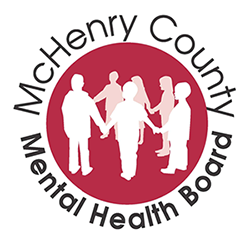Trauma-Informed Supervision: Strategies to Avoid Burnout virtual training presented by Toni Tollerud, Ph.D., LCPC, NCC, NCS, ACS. Tuesday, December 15, 2020 from 9:00 am to 4:00 pm. Free: 6 CEUs for LCPC/LPC & LPSW/LSW. Register Now!
Description:
Therapists who work with populations experiencing high levels of trauma need intentional supervision that will help them address the complex issues of their clients as well as how they may be reacting psychologically and emotionally in the situations. Supervisors have a responsibility to assess these reactions in the supervisee, and, if necessary, to offer strategies and referrals that will maintain wellness and effectiveness.
This workshop will review the critical factors of a trauma-informed system of care and how supervisors can infuse this into their clinical supervision. It will explore alternative theoretical approaches to trauma-informed supervision including changes in language, being strength-based, and using a reflective supervision model. Additionally, participants will consider trauma within the intersectionality of gender, race, and class, and how it needs to align with the mission of social justice. Finally, participants will review the psychoeducational aspects of vicarious trauma and compassion-fatigue, and look at evidence-based strategies to promote self-care and wellness with supervisees.
Learning Objectives:
As a result of participating in this workshop, professionals will:
- Assess the counselor’s own Adverse Childhood Experiences to consider the impact these traumatic experiences have on brain development and behavior
- Consider the impact of trauma on brain development and behavior
- Develop a comprehensive understanding of the effects and complexity of trauma, its potential behavioral manifestations, and best practices to address the needs of clients and supervisees
- Review the critical factors of language, strength-based, and reflective supervision components in a trauma-informed supervision approach
- Understand and recognize trauma as an interpersonal and sociopolitical agent in supervision, and how the creation of a trauma-informed system of care aligns with the mission of social justice in clinical supervision
- Consider the impact of working with highly traumatized clients on supervisees and the role of the supervisor to monitor the effects
- Review strategies used in supervision to reduce psychological distress including emotional exhaustion, vicarious traumatization, compassion fatigue, and secondary traumatic stress.
- Use a series of assessments to consider levels of personal burnout, compassion fatigue, self-soothing, work burnout, and secondary traumatic stress and consider interventions supervisors can use to promote awareness and wellness
Presenter:
 Dr. Toni R. Tollerud is a professor in the Department of Counseling, Adult and Higher Education at Northern Illinois University. She received a Presidential Teaching Professorship Award in 2008. In her 25 years at NIU, she has coordinated and served as Director of Internship and the School Counseling Program. She is an accomplished counselor educator and consults all over the state on issues related to supervision, career development, and school counseling.
Dr. Toni R. Tollerud is a professor in the Department of Counseling, Adult and Higher Education at Northern Illinois University. She received a Presidential Teaching Professorship Award in 2008. In her 25 years at NIU, she has coordinated and served as Director of Internship and the School Counseling Program. She is an accomplished counselor educator and consults all over the state on issues related to supervision, career development, and school counseling.



